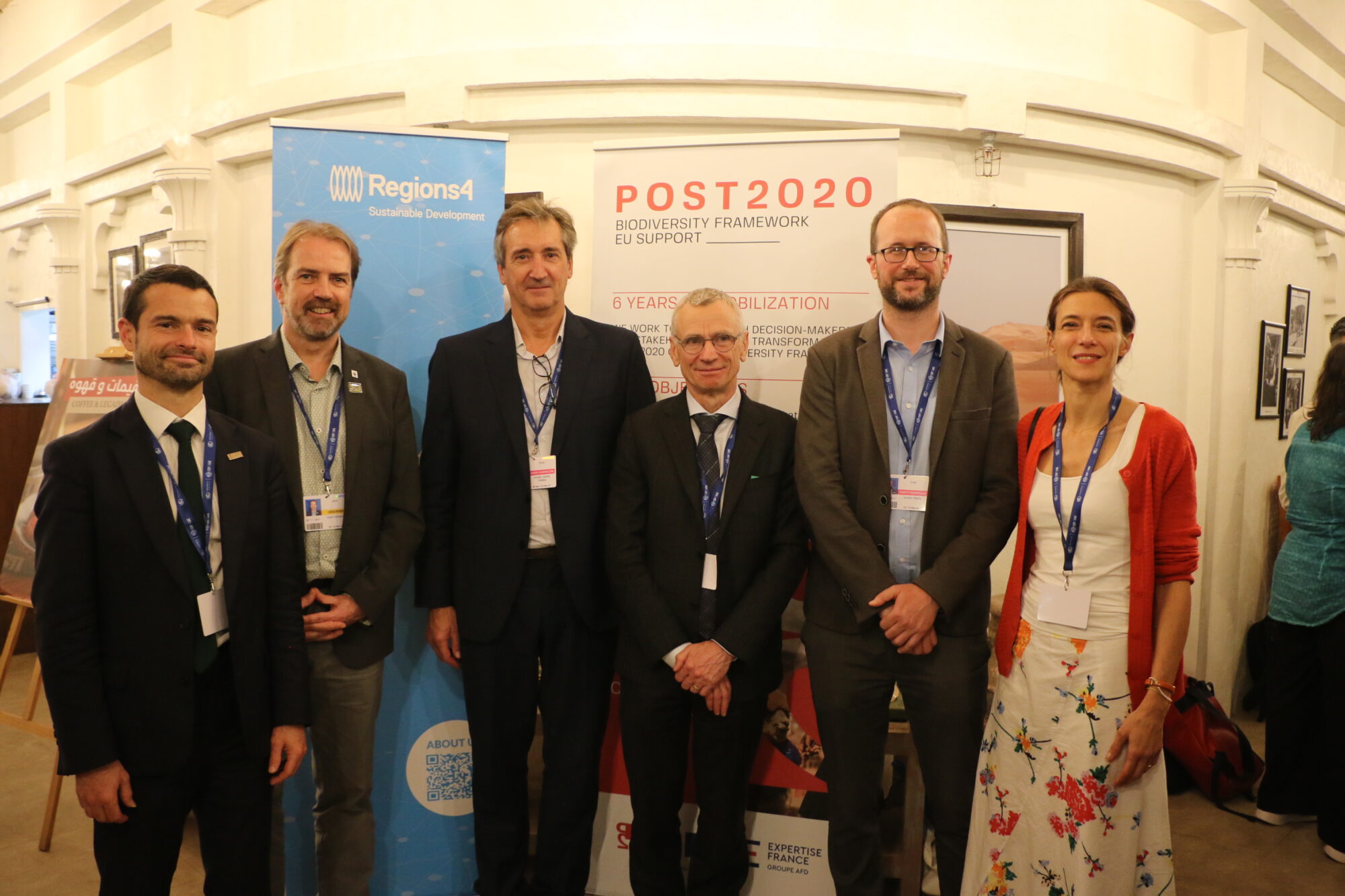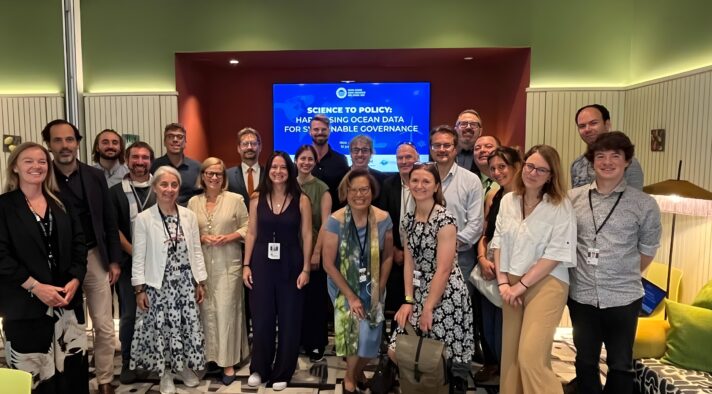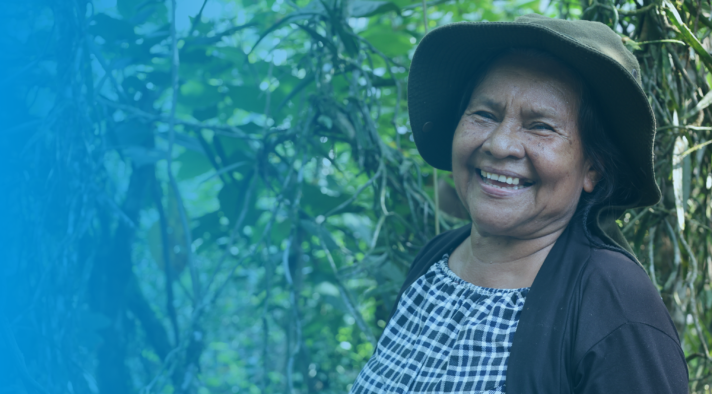CoP28 marks the beginning of the end of fossil fuels and raises the bar on adaptation and nature. A most significant takeaway is the historic recognition of subnational governments as pivotal catalysts for the transformative change we urgently need.
COP28 has been the biggest to date with over 97,000 participants. It has been particularly important as the first ever global review on progress or Global Stocktake, in a critical context with policies in place pointing to a 2.8°C temperature rise by the end of the century and a growing adaptation finance gap of US$194-366 billion per year (UNEP Gap Reports 2023).
Regions4 brought together over 20 regional governments from around the world to showcase our commitments and key role in accelerating action. From day one, we sent a strong united message through a joint Local Governments Municipal Authorities (LGMA) position calling for COP28 to be a turning point for cities and regions in climate action leadership. 71 governments and partner organizations have endorsed the statement and made clear at the dedicated press conference that multilevel action delivers.
On 1 and 2 December Regions4 participated in the first-ever Local Climate Action Summit (LCAS) at a COP, attended by over 450 attendees from over 60 countries, including over 250 Mayors and Governors and the UN Secretary General. The formal inclusion of LCAS within the official COP program is a much appreciated milestone and we strongly advocate for its permanent integration into future COPs, in close coordination with LGMA.
The operationalization of the Loss and Damage Fund on day one marked a historic moment. With a commitment to direct access for subnational governments, this fund represents a tangible step toward addressing climate change’s real and immediate impacts at the local level. We have witnessed regions like Scotland paving the way on this topic since COP26 in Glasgow and now urge for pledges to rise at the necessary scale.

Regions4 has supported the new Coalition of High Ambition Multilevel Partnerships for Climate Action (CHAMP), endorsed by 71 States to enhance cooperation with subnational governments in planning, financing, implementing and monitoring climate strategies. At the Multilevel Action and Urbanization Pavilion we have organized several events to demonstrate how regions are working with their national counterparts and local communities, and their leadership in implementing National Adaptation Plans (NAPs) and Nationally Determined Contributions (NDCs).
COP28 has made substantial strides in recognizing nature as a crucial ally in the fight against climate breakdown and enhancing resilience. We welcome the Joint Statement for Climate, People and Nature and the launch of relevant initiatives to support action, such as channeling more than 2.5 billion for ecosystem based solutions. Bringing together the UN Conventions on Climate and Biodiversity, the statement is a powerful signal that there is no pathway to a net zero and resilient future that does not pass through nature positivity and references subnational authorities as part of the whole-of-society approach needed to deliver integrated strategies. Regions are integrating solutions into decision-making that speak to this alignment, and the session “Tackling the twin crises of climate and biodiversity loss”, co-organized with Regions4 and the European Committee of the Regions, and supported by the Post 2020 Biodiversity Framework, a project financed by the EU and implemented by Expertise France, showcased examples coming from Turku Island, Catalonia, Scotland and Kwazulu Natal. Furthermore, the policy brief “Transformative multilevel action: Subnational solutions for climate & biodiversity”, written by Regions4 experts, with support of the Post 2020 Biodiversity Framework, promotes the importance of subnational governments as innovation laboratories for inclusive solutions for both crises.

Speakers at the side event “Tackling the twin crises of climate and biodiversity loss” co-organised by Regions4, European Committee of the Regions and the Post-2020 Biodiversity Framework EU Support project.

Regions4 has been particularly engaged in the negotiations to define the Global Goal on Adaptation and were very pleased that the UNFCCC Presidency requested our recommmendations on this topic. Importantly, this CoP has adopted the framework to enhance and finance adaptation. While recognizing the vital role of local governments, it falls short in addressing the specific financial needs required to empower local and subnational governments who are facing the impacts firsthand. Our RegionsAdapt initiative, highlighted in key publications like the UNFCCC Yearbook and the Sharm El Sheikh progress report, supports regions and reports on their progress, contributing as official partner to the UN’s Race to Resilience campaign. Our latest report launched at CoP shows that regions are committed to climate justice and working to leave no one behind in the ecological transition.
After intense negotiations, Cop28 finally agreed to transition away from fossil fuels in a historic agreement that addresses for the first time the major root cause of climate change. Even if many of us wanted to go further, the end of the fossil fuel era is unavoidable.
We know the real work is outside of the negotiations. Whether Cop28 is a truly a turning point that marks the beginning of a new era depends on the actions and the mobilization of finance that come next. Subnational governments play a pivotal role in translating global climate goals into practical, localized actions. Regions4 will continue to work with regions from across the world to go further, to lead a fair and sustainable transition and to build resilience with people and nature at the core.
Natalia Uribe Pando
Secretary General , Regions4
Explore more:
- Regions4 at COP28: An overview of our outcomes and activities
- RegionsAdapt 2023 Progress Report: Launched at COP28, our report focuses on the links between climate justice and regional adaptation planning and action
- #RegionsVoice at COP28: Explore some of the stories that our members have brought to COP28



